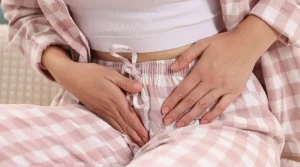Do you find yourself lying awake at 3 AM, mind racing, wondering why your energy crashes every afternoon despite drinking coffee all day? Or perhaps you’ve noticed your mood swings have become more intense, your weight is creeping up despite your best efforts, and you just don’t feel like yourself anymore?
You’re not alone. What many Fair Lawn residents don’t realize is that poor sleep isn’t just making you tired – it’s wreaking havoc on your entire hormonal system. The intricate dance between sleep and hormones affects everything from your metabolism and stress response to your ability to build muscle and maintain a healthy weight.
At Lasting Impressions Medical Spa, we’ve seen countless patients transform their lives by understanding and optimizing this crucial sleep-hormone connection. Let’s dive into how your nightly rest directly impacts your hormonal health and what you can do about it.
The Hidden Cost of Sleep Deprivation on Your Hormonal Health
When you skimp on sleep, your body doesn’t just feel tired – it enters a state of hormonal chaos. Research shows that even one night of poor sleep can disrupt multiple hormone systems simultaneously.
Growth Hormone Production Plummets
Your body releases approximately 75% of its daily growth hormone during deep sleep phases. This isn’t just important for children – adults need growth hormone for muscle repair, fat metabolism, and cellular regeneration. When you’re not getting quality sleep, your body produces significantly less growth hormone, leading to:
- Slower muscle recovery after exercise
- Increased fat storage, especially around the midsection
- Premature aging signs like wrinkles and decreased skin elasticity
- Reduced bone density over time
Cortisol Levels Spike and Stay Elevated
Cortisol, your primary stress hormone, should follow a natural rhythm – high in the morning to help you wake up, then gradually declining throughout the day. Poor sleep disrupts this pattern, keeping cortisol elevated when it should be low. This chronic elevation contributes to:
- Increased appetite and cravings for high-calorie foods
- Difficulty losing weight despite diet and exercise efforts
- Weakened immune system
- Higher risk of anxiety and depression
Melatonin Production Becomes Erratic
Melatonin isn’t just a sleep hormone – it’s also a powerful antioxidant that helps regulate other hormones. When your sleep schedule is inconsistent or you’re exposed to too much blue light before bed, melatonin production suffers, creating a cascade of hormonal imbalances.
Ready to break the cycle of poor sleep and hormonal chaos? Our bioidentical hormone replacement therapy can help restore balance while you work on optimizing your sleep habits. Call (201) 773-6837 to schedule your comprehensive hormone evaluation.
The Science Behind Sleep Stages and Hormone Regulation
Understanding how different sleep stages affect your hormones can help you prioritize sleep quality over just sleep quantity.
Stage 1-2: Light Sleep
During these initial stages, your body begins to slow down hormone production that should be lower at night, like cortisol. However, if you’re frequently waking up during these stages due to stress, noise, or other disruptions, this process gets interrupted.
Stage 3-4: Deep Sleep (Slow-Wave Sleep)
This is where the magic happens for hormone regulation:
- Growth hormone surges to repair tissues and build muscle
- Cortisol levels drop to their lowest point
- Immune system hormones ramp up to fight off infections and inflammation
- Memory consolidation occurs, which affects hormones related to learning and mood
REM Sleep
During REM sleep, your brain processes emotions and memories while several hormones are regulated:
- Stress hormone regulation helps reset your emotional baseline
- Neurotransmitter balance is restored, affecting mood-regulating hormones like serotonin
- Temperature regulation hormones are fine-tuned
How Different Life Stages Affect Your Sleep-Hormone Connection
Women in Their 30s-40s
As estrogen and progesterone levels begin to fluctuate during perimenopause, many women experience:
- Difficulty falling asleep due to racing thoughts (low progesterone)
- Night sweats that wake them up (estrogen fluctuations)
- Early morning awakenings (shifting hormone rhythms)
Men Over 40
Testosterone naturally declines with age, but poor sleep accelerates this process:
- Reduced deep sleep stages where testosterone is produced
- Increased belly fat that further lowers testosterone
- Sleep apnea risk increases, further disrupting hormone production
Post-Menopausal Women
Without estrogen’s protective effects on sleep, many women experience:
- Increased cortisol sensitivity
- Difficulty reaching deep sleep stages
- Greater impact of stress on sleep quality
Practical Strategies to Optimize Your Sleep-Hormone Connection
Create a Hormone-Supporting Sleep Environment
Your bedroom should be a sanctuary for hormonal restoration:
- Keep it cool (65-68°F) to support natural temperature drops that trigger sleep hormones
- Make it completely dark or use blackout curtains to maximize melatonin production
- Minimize noise or use a white noise machine to prevent cortisol spikes from sudden sounds
- Remove electronic devices at least 1 hour before bed to avoid blue light interference with melatonin
Time Your Evening Routine for Optimal Hormone Production
- 3 hours before bed: Stop eating large meals to allow growth hormone production during sleep
- 2 hours before bed: Dim the lights to begin melatonin production
- 1 hour before bed: Begin relaxation activities like reading, gentle stretching, or meditation
- 30 minutes before bed: Practice deep breathing or progressive muscle relaxation to lower cortisol
Morning Habits That Support Nighttime Hormone Production
- Get sunlight within 30 minutes of waking to set your circadian rhythm
- Eat protein at breakfast to stabilize blood sugar and support steady energy throughout the day
- Exercise in the morning or early afternoon to promote deeper sleep at night
- Limit caffeine after 2 PM to avoid interference with sleep-inducing hormones
Don’t wait for better sleep to fix your hormones naturally – it can take months or years. Our bioidentical hormone replacement therapy can provide immediate relief while you implement these sleep strategies. Visit our hormone therapy page to learn how we can help.
Advanced Sleep Optimization: Tracking and Measuring Success
Key Metrics to Monitor
- Sleep onset time: How long it takes you to fall asleep (should be 10-20 minutes)
- Deep sleep percentage: Should account for 15-20% of total sleep time
- Wake frequency: Less than 2-3 brief awakenings per night is normal
- Morning energy levels: Rate your energy 1-10 upon waking
Technology Tools for Better Sleep-Hormone Health
- Sleep tracking devices can help identify patterns and improvements
- Blue light blocking glasses for evening screen use
- Smart alarm clocks that wake you during lighter sleep phases
- Temperature-regulating mattress pads for optimal sleep environment
When Sleep Optimization Isn't Enough: The Role of Hormone Replacement
Sometimes, despite your best efforts with sleep hygiene, hormonal imbalances are too severe to correct naturally. This is especially true if you’re experiencing:
- Severe insomnia that doesn't respond to sleep strategies
- Night sweats or hot flashes that disrupt sleep
- Chronic fatigue despite adequate sleep duration
- Mood changes that interfere with relaxation
At Lasting Impressions Medical Spa, we specialize in bioidentical hormone replacement therapy that works synergistically with good sleep habits. Unlike synthetic hormones, bioidentical hormones match your body’s natural hormone structure, providing:
Better Sleep Quality
- Progesterone Therapy can improve sleep onset and reduce nighttime awakenings
- Balanced estrogen levels reduce night sweats and temperature fluctuations
- Optimized testosterone levels in men improve deep sleep stages
Enhanced Hormone Production
- Better sleep quality allows your body to produce more of its own hormones naturally
- Reduced cortisol levels create space for other hormones to function properly
- Improved growth hormone release during deeper sleep phases
Your Next Steps to Better Sleep and Hormonal Balance
The connection between sleep and hormones is undeniable, but you don’t have to figure it out alone. Whether you’re dealing with perimenopause, andropause, or simply want to optimize your health, combining good sleep practices with professional hormone evaluation can transform how you feel.
Start Tonight
- Implement one new sleep hygiene practice from this guide
- Track your sleep and energy levels for one week
- Notice patterns between your sleep quality and how you feel the next day
Get Professional Support
Schedule a comprehensive hormone evaluation at Lasting Impressions Medical Spa. During your consultation, we’ll:
- Assess your current hormone levels through detailed testing
- Review your sleep patterns and identify potential disruptions
- Create a personalized treatment plan that may include bioidentical hormone therapy
- Provide ongoing support to optimize both your sleep and hormonal health
Don’t let another sleepless night sabotage your hormones and your health. Take the first step toward better sleep and hormonal balance today.
Ready to reclaim your energy and feel like yourself again? Call Lasting Impressions Medical Spa at (201) 773-6837 or visit our website to schedule your hormone consultation. Your best sleep – and your best self – are waiting.






